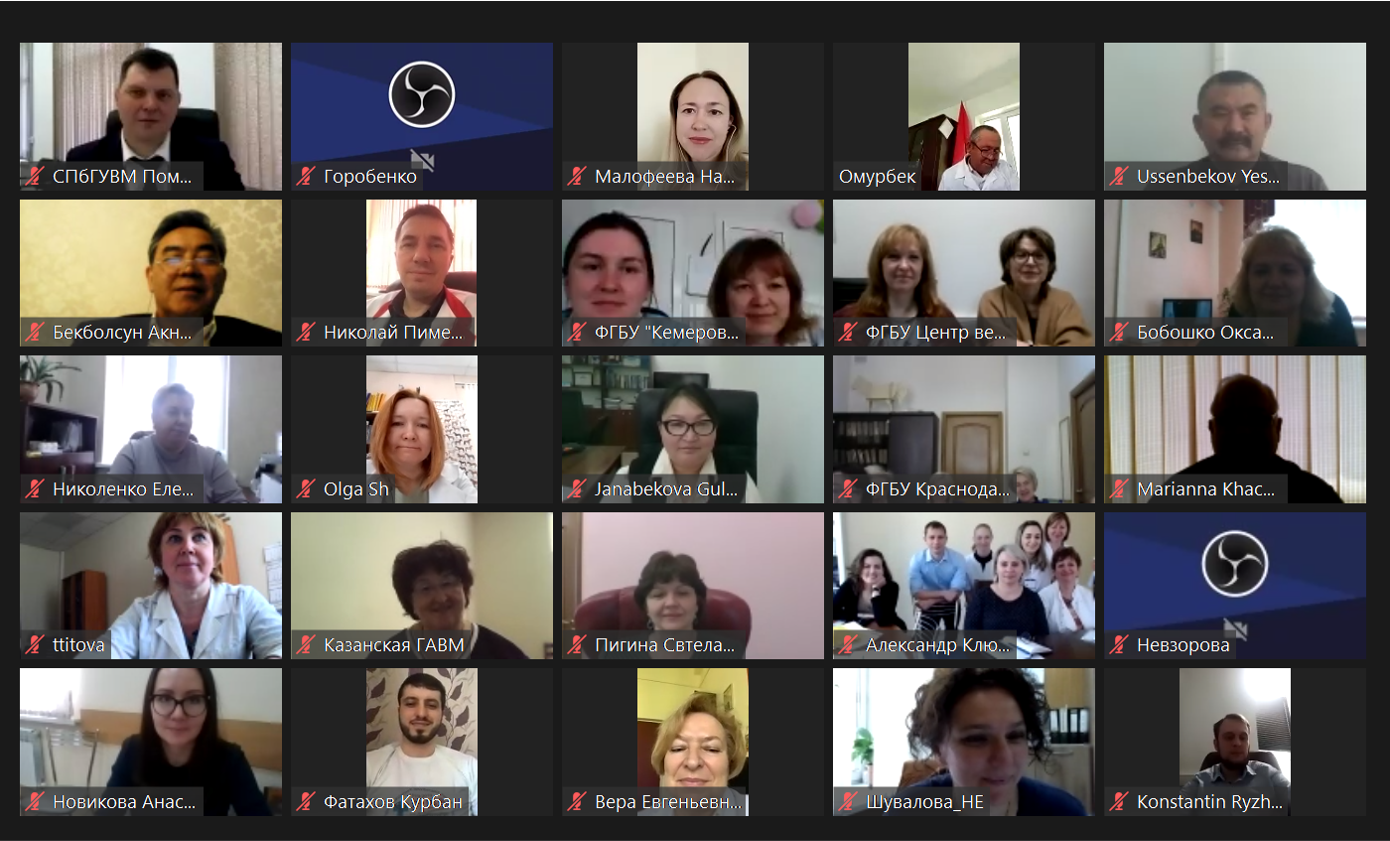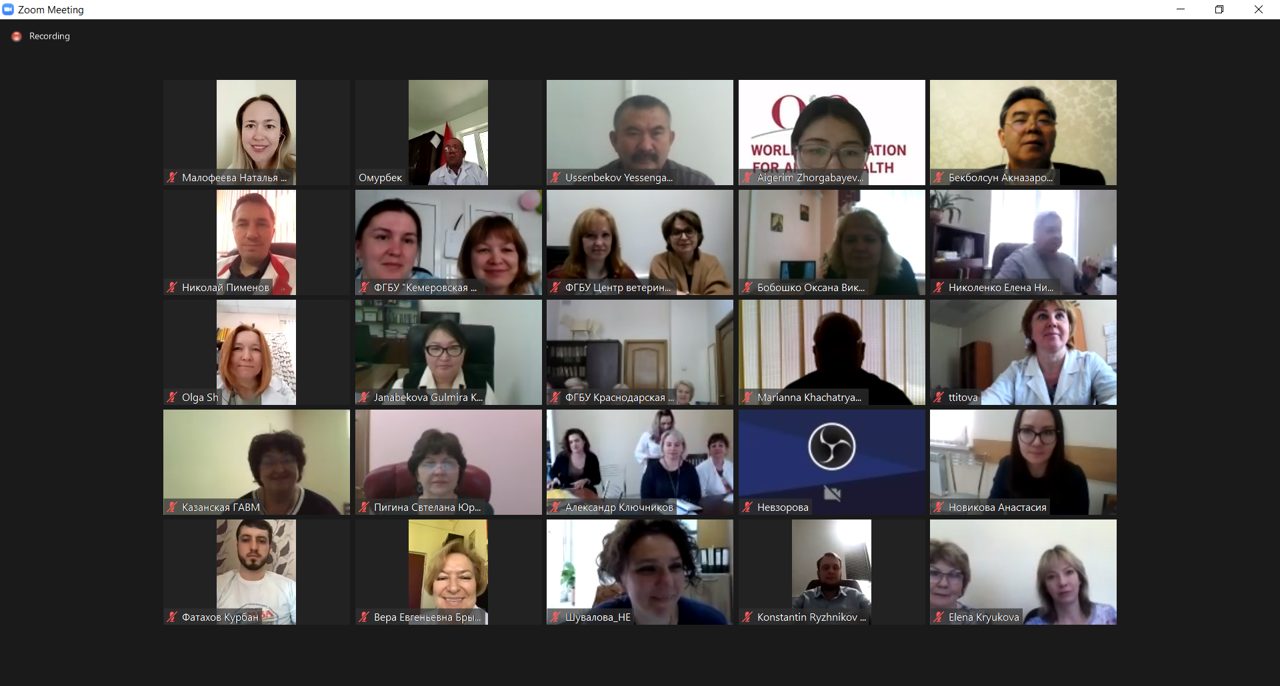


In the framework of the three-year collaboration program between the OIE and the Eurasian Economic Commission, a series of webinars were organized on subjects of common interest to their members. Due to the Covid 19 pandemic, some of the activities planned for 2020 were carried out in virtual format this year.
The last event was held on the 13th of May jointly and explored the subjects of the role of reference veterinary laboratories (including OIE reference laboratories), and the dynamics of harmonization in veterinary education with OIE international standards.
With the online format, it was possible to enlarge participation, and the event attracted more than 120 participants, with attendants from both sides: laboratories and veterinary education establishments in all five countries of the Eurasian Economic Union (Armenia, Belarus, Kazakhstan, Kyrgyzstan, and the Russian Federation).
The webinar was chaired by Dr Mereke Taitubayev, OIE Sub Regional Representative in Nur-Sultan, who recognized the importance of this seminar and fruitful implementation of the Memorandum of Understanding between OIE and EEC as well as Programme of collaboration 2018-2020 and congratulated for very high level of attendance.
In opening remarks, Dr Budimir Plavsic, OIE Regional Representative, and Dr Vladimir Subbotin, Deputy Director of SPS Department in EEC, highlighted the effectiveness of collaboration between two international organisation and underlined the importance of harmonization of regional and national legislation with OIE standards. The new collaboration programme was announced for the following three years, to be developed on global and regional priorities, the 7th OIE Strategic Plan, best practices, and specific needs of five Members. Dr Plavsic namely expressed the importance of implementation of provisions from the OIE Manual of Diagnostic Tests and Vaccines for Terrestrial Animals, Manual of Diagnostic Tests for Aquatic Animals, and OIE Guidelines on Veterinary Education Core Curriculum, as well as OIE Recommendations on the Competencies of graduating veterinarians (‘Day 1 graduates’) to assure National Veterinary Services of quality.
Presentations were made by OIE experts Dr Mario Latini and Dr Dmitry Morozov on laboratory methodology and veterinary education, setting out the framework of standards and what they are for, this was then illustrated by presentations from participants.
On the work of reference laboratories, two OIE reference laboratories, one from Italy (Dr Isabella Monne, IZSVe) and one from the Russian Federation (Dr Artem Metlin, AARIAH) explained how they provide value to their network of partners through expertise, network organization and animation, and activities in helping to assure the quality of laboratory diagnostics before the floor was given to interventions from other laboratories in the region.
About veterinary education, presentations were made by the National Agrarian University of Kyrgyzstan on their collaboration with a Spanish university and their general approach to implementing guidelines on education at a national level, and the National Agrarian University of Kazakhstan on their collaboration with the National Veterinary School in Toulouse.
Amongst the main conclusions of the event were:
Participants expressed high interest in participating in further meetings of this sort, and this will be considered when agreeing on the further programme of collaboration between the OIE and the Eurasian Economic Commission.
More information on the OIE positions and recommendations are available here:

